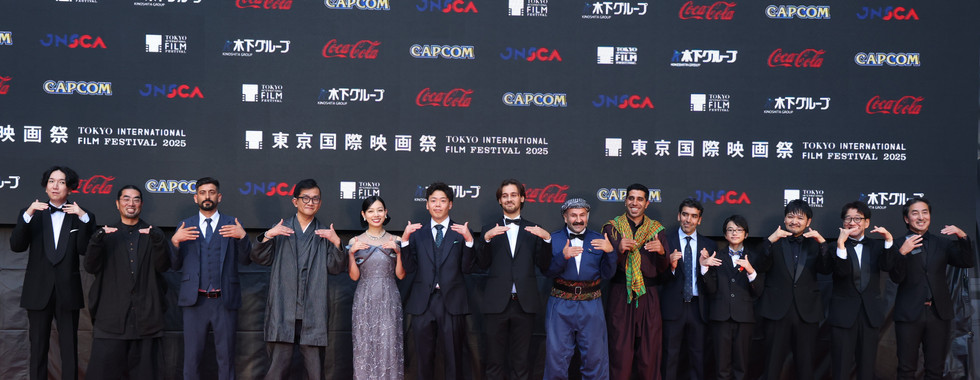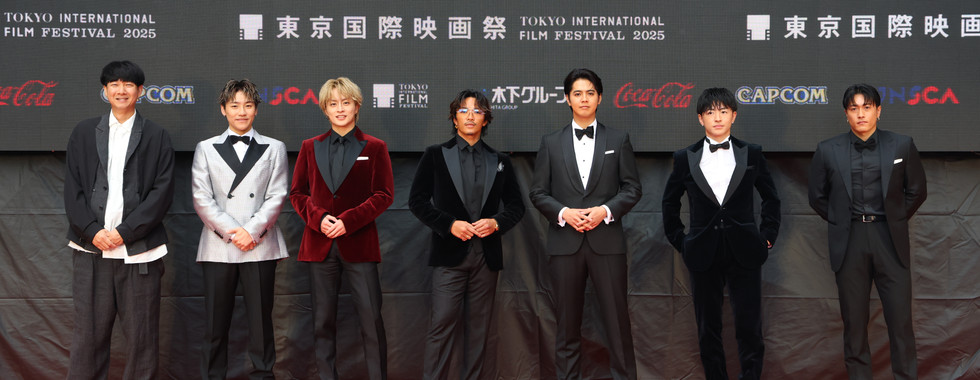Tokyo International Film Festival 2025: Where Stories Cross Borders and Cinema Shines
- Nov 19, 2025
- 3 min read
From October 27 to November 5, 2025, Tokyo’s elegant heart — centered around Midtown Hibiya, Yurakuchō, and Marunouchi — transformed into a cinematic epicenter for the 38th Tokyo International Film Festival (TIFF). With a lineup of 184 films and more than 69,000 attendees, TIFF 2025 stood as a vivid testament to its stature as Japan’s preeminent public and industry festival, forging dynamic connections between Japanese cinema and global storytelling.
The festival opened with Climbing for Life, a stirring biographical drama by Junji Sakamoto, and closed with Hamnet, directed by Oscar-winner Chloé Zhao — a deliberate arc that bridged intimate Japanese narratives with the sweeping reach of international cinema.

A Star-Studded Celebration in the City
The festival was graced by luminaries such as Juliette Binoche and Fan Bingbing, whose presence magnified its global appeal. Red carpet screenings and marquee premieres across Hibiya, Marunouchi, and Yurakuchō lent TIFF an urbane and cosmopolitan energy, turning central Tokyo into a pulsating cinema boulevard.
Cinema Across Cultures and Generations
In the Competition section, TIFF presented a boldly diverse selection of works that explored themes of identity, motherhood, migration, and conflict. Documentaries like We Are the Fruits of the Forest, which follows Cambodia’s Bunong people, and intimate dramas such as Mothertongue, which meditates on language and memory, typified the festival’s thematic range.
The Asian Future strand was a showcase for emerging voices, while student competitions and special thematic programs highlighted discovery, experimentation, and dialogue. Through these sections, TIFF acted not only as a festival, but as a laboratory for the next generation of filmmakers.
A particularly memorable moment was the masterclass with director Peter Ho-sun Chan, moderated by Programming Director Shozo Ichiyama. Chan reflected on his international career, the ethical role of filmmakers, and the power of storytelling across cultural divides — underscoring TIFF’s dedication to education and creative exchange.

Honoring Excellence and Bold Visions
The Awards Ceremony on November 5 rewarded outstanding achievements. The Tokyo Grand Prix, alongside the Governor of Tokyo Award, was awarded to Palestine 36 by Annemarie Jacir, an emotionally resonant film about the 1936 Palestinian uprising. The Audience Award went to Blonde (dir. Sakashita Yuichiro), a Japanese film that struck a chord with festivalgoers.
Other distinguished winners included We Are the Fruits of the Forest by Rithy Panh (Special Jury Prize), and a tie for Best Director between Alessio Rigo de Righi & Matteo Zoppis (Heads or Tails?) and Zhang Lu (Mothertongue). The Best Actress award was shared by Fukuchi Momoko and Kawase Naomi for Echoes of Motherhood, while Best Actor went to Wang Chuanjun (Mothertongue). The Kurosawa Akira Award honored Lee Sang-il and Chloé Zhao, and the Lifetime Achievement Award was presented to Yamada Yoji and Yoshinaga Sayuri — reflecting not just the artistry of today but a celebration of film’s heritage.
The festival further recognized innovation and promise: awards for the Asian Future category, student films, and young cinematic voices reinforced TIFF’s role as a nurturing ground for new talent.
A Cultural Experience in the Heart of Tokyo
TIFF 2025 was more than a film festival — it was a cultural movement intertwined with Tokyo’s urban fabric. Screenings, masterclasses, panels, and after-hours events took place across multiple central venues, uniting audiences, creatives, and industry in shared spaces of discovery. The festival’s structure — four days for industry professionals, followed by three public days — allowed for both serious networking and broad audience participation.
Through the TIFF Lounge, conversations unfolded around cinema’s meaning and its impact, while the city became a living palette for cultural exchange. The urban backdrop of Marunouchi and Hibiya, with its lights and architecture, played a starring role, turning every step into a cinematic moment.
Why TIFF 2025 Mattered
The 38th Tokyo International Film Festival reaffirmed its position as a crossroads for global cinema and local culture. With its carefully curated program, TIFF created a space where socially resonant stories and boundary-pushing artistry could flourish side by side. The awards celebrated both seasoned masters and daring newcomers, while the masterclass and industry events fostered dialogue across continents.In short, TIFF 2025 was not just a festival — it was a celebration of cinema’s capacity to unify, challenge, and inspire.
Red Carpet @TIFF
























